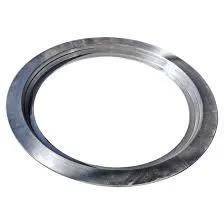dec. . 11, 2024 07:52 Back to list
underground cast iron pipe
Understanding Underground Cast Iron Pipes Importance, Applications, and Maintenance
Underground cast iron pipes have been a crucial element in the infrastructure of urban and rural environments for over a century. Known for their durability and strength, these pipes are extensively employed in water distribution, sewage systems, and various industrial applications. Understanding their characteristics, advantages, and maintenance requirements can shed light on their significance in modern engineering.
Properties and Advantages
Cast iron pipes are made from molten iron that has been poured into molds, allowing for intricate designs and fittings. One of the primary advantages of cast iron is its high tensile strength and resilience. These pipes can endure considerable stress from soil pressure and traffic loads, which makes them particularly suitable for underground installations. Additionally, cast iron's resistance to corrosion is a compelling factor in its use; while susceptible to rust when exposed to moisture, the internal lining of many cast iron pipes protects them from deterioration over time.
Moreover, cast iron has excellent sound-deadening properties, which is beneficial in urban settings. The density of the material reduces noise from water flow and minimizes vibrations transmitted to surrounding structures. This makes cast iron an excellent choice for water mains and sanitary sewer systems located near residential areas.
Another critical advantage is the longevity of cast iron pipes. When properly installed and maintained, these pipes can last between 50 to 100 years or even longer, presenting long-term value in terms of infrastructure investments.
Applications
The applications of underground cast iron pipes are extensive. In municipal water systems, they are primarily used for drinking water distribution and fire protection. Cast iron pipes can handle the high pressures often required in water distribution networks, ensuring safe and reliable access to clean water.
underground cast iron pipe

In sanitation systems, cast iron pipes are integral for the transportation of wastewater. Their ability to handle various types of effluent, combined with their strength, makes them ideal for both residential and commercial sewage systems. Additionally, these pipes can be utilized for stormwater drainage, aiding in the efficient management of surface water runoff.
Beyond municipal uses, cast iron pipes are also employed in several industrial applications, including heating systems and chemical processing. They can withstand high temperatures and pressures, making them suitable for transporting steam or hot liquids.
Maintenance and Considerations
While cast iron pipes are known for their durability, regular maintenance is crucial to ensure their longevity and performance. Over time, even the best-maintained pipes may experience wear and tear, particularly at joints where leaks can develop. Regular inspections using video technology can help identify potential issues such as corrosion, cracks, or blockages, allowing for prompt repairs before they escalate into more significant problems.
Another important consideration is the environmental impact of cast iron pipes. Although they are highly durable, their production involves emissions of carbon. Innovations in manufacturing, such as using recycled materials and adopting sustainable practices, have aimed to mitigate these effects, making cast iron a more eco-friendly choice in modern infrastructure.
Conclusion
Underground cast iron pipes represent a time-tested solution for various applications across municipal and industrial landscapes. Their strength, durability, and longevity make them a popular choice for infrastructure projects aimed at ensuring the safe delivery of water and the effective management of waste. However, like all materials, they require maintenance and careful inspection to perform optimally.
As communities continue to grow, and as the demand for reliable infrastructure rises, understanding the properties and applications of underground cast iron pipes becomes increasingly important. Advances in technology and maintenance practices will further enhance their performance, ensuring that these essential components of modern engineering continue to serve communities effectively for generations to come. In an era of rapid technological advancement, the legacy of cast iron pipes remains a testament to the importance of durable and reliable materials in our infrastructure.
-
Durable Cast Steel Concrete Pipe Mold Bottom Rings & Base Trays
NewsAug.23,2025
-
Centrifugally Cast Iron Water Main Pipe for Reliable Mains
NewsAug.22,2025
-
Durable Centrifugally Cast Iron Water Main Pipe
NewsAug.11,2025
-
Centrifugally Cast Iron Water Main Pipes for Reliability
NewsAug.10,2025
-
High-Quality Centrifugally Cast Iron Water Main Pipes
NewsAug.09,2025
-
Durable Cast Iron Water Main Pipe & Drainage Solutions
NewsAug.08,2025


